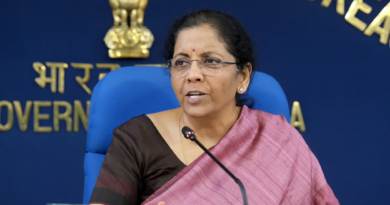INDIAN Australian Akshay Venkatesh wins Fields medal – The ‘Nobel for maths’
AUSTRALIAN of Indian origin mathematician Akshay Venkatesh has won the Fields medal, the mathematics equivalent of the Nobel Prize. He becomes only the second Australian to win the prestigious prize, after Terence Tao in 2006. Venkatesh, 36, now lives in the US and is a professor of mathematics at Stanford University. He received the award for his “impeccable contribution to the field of mathematics”. He made our country proud. The 36-year-old Venkatesh has a wide range of knowledge in maths and he is one of a kind. New Delhi-born Venkatesh is currently teaching at Stanford University. Akshay Venkatesh is the only Indian to have won a Fields medal, a Nobel Prize for Math Fields medal, the prestigious one was first awarded in 1936. Ever since 1950, 4 mathematicians under the age of 40 are given the award every 4 years. Akshay Venkatesh is the one and only India to get featured in the proud list of winners. Venkatesh received the medal at the International Congress of Mathematicians in Rio de Janeiro. Along with that, he received 15,000 Canadian-dollar cash prize (Rs.7.9 lakh rupees).From being a child genius to becoming one of the most profound researchers in the stream of mathematics; Venkatesh’s life is full of success and honours. When he was 2 years old, he moved to Perth in Australia with his parents. The Guardian writes he grew up in Perth and, at 13, became the youngest person to study at the University of Western Australia where he went straight into second-year maths courses after he proved he could write the exam papers for all the first-year subjects. He earned first-class honours in pure mathematics aged 16 – again the youngest to do so – before studying at Princeton. In 2002, he earned his PhD at the age of 20. Since then, he has gone from holding a post-doctoral position at MIT to becoming a Clay Research Fellow and, now a professor at Stanford University. Venkatesh has worked at the highest level in number theory, arithmetic geometry, topology, automorphic forms and ergodic theory. His research has been recognized with many awards, including the Ostrowski Prize, the Infosys Prize, the Salem Prize and Sastra Ramanujan Prize. His work uses representation theory, which represents abstract algebra in terms of more easily-understood linear algebra, and topology theory, which studies the properties of structures that are deformed through stretching or twisting, like a Möbius strip. Former refugee among winners of Fields medal – the ‘Nobel prize for maths’. Receiving his award on Thursday, he said: “A lot of the time when you do math, you’re stuck, but at the same time there are all these moments where you feel privileged that you get to work with it.“You have this sensation of transcendence, you feel like you’ve been part of something really meaningful.”




